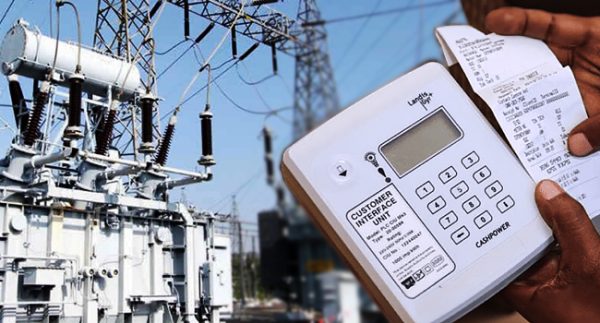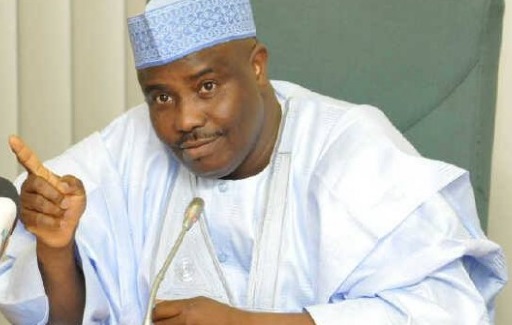Electricity Subsidy Gulps N629bn As Discos Generate N1.1tn
The Federal Government spent N628.61bn as subsidy on electricity in 2023, as power distribution companies collected a total revenue of N1.08tn during the same period, the latest industry data obtained from the Nigerian Electricity Regulatory Commission on Wednesday showed.
An analysis of figures from the power sector regulator indicated that electricity subsidies continued to increase every quarter all through last year.
It was observed that subsidies on power in the first, second, third, and fourth quarters of 2024 were N36.02bn, N135.23bn, N204.6bn, and N252.76bn respectively.
It was also observed that during the same period, power distribution companies raked in N247.09bn, N267.86bn, N267.61bn, and N294.95bn in the first, second, third, and fourth quarters of 2023 respectively.
The rise in revenue by Discos prompted calls for improved services from the power firms, as consumers condemned the Discos’ inability to deliver satisfactorily.
In the absence of cost-reflective tariffs, the Federal Government undertakes to cover the resultant gap between the cost-reflective and allowed tariff in the form of tariff subsidies.
For ease of administration, the subsidy is only applied to the power generation cost payable by Discos to the Nigerian Bulk Electricity Trading company, which is the power trader in the sector.
The transmission and administrative service costs payable by Discos to the Market Operator, an arm of the Transmission Company of Nigeria, are recovered 100 per cent.
However, it should be noted that the power generation cost is a major component that guarantees electricity generation and supply across the country.
Also, the share of the NBET invoice to be covered by Discos is determined by the percentage of the generation cost they can recover from the allowed tariff and set out as their Minimum Remittance Obligation in the periodic tariff orders issued by the commission.
Commenting on the amount spent on electricity subsidy in the fourth quarter of 2023 in its latest report, the NERC said, “It is important to note that due to the absence of cost-reflective tariffs across all Discos, the government incurred a subsidy obligation of ₦252.76bn in 2023/Q4.”
This represents an average of ₦84.25bn per month, which is an increase of ₦48.16bn (23.54 per cent), compared to the ₦204.6bn (average of ₦68.20bn per month) incurred in 2023/Q3.
“This increase is largely attributable to the government’s policy to harmonise exchange rates, while also directing that end-user customer tariffs remain at the December 2022 approved rates,” the commission stated.
Explaining the subsidy spent on power in the third quarter, NERC said, “It is important to note that due to the absence of cost-reflective tariffs across all Discos, the government incurred a subsidy obligation of ₦204.59bn in 2023/Q3 (average of ₦68.20bn per month).
“This is an increase of ₦69.37bn (51.30 per cent) compared to the ₦135.23bn (average of ₦45.08bn per month) incurred in 2023/Q2; this increase is largely attributable to the government’s policy to harmonise exchange rates.
“The rise in the government’s subsidy obligation meant that in 2023/Q3, Discos were only expected to cover 45 per cent of the total invoice received from NBET. For ease of administration of the subsidy, the MRO is limited to NBET only with the MO being allowed to recover 100 per cent of its revenue requirement from the Discos.”
“On the same subsidy issue for the second quarter of 2023, the commission stated that due to the absence of cost-reflective tariffs across all Discos, the “government incurred a subsidy obligation of ₦135.23bn in 2023/Q2.”
It added that this represents “an increase of ₦99.21bn (275 per cent) compared to the ₦36.02bn incurred in 2023/Q1. This increase is largely attributable to the government’s policy to harmonise exchange rates. On average, the subsidy obligation incurred by the government per month was ₦45.08bn in 2023/Q2.”
Discos earn N1.1tn
The data from NERC also showed how power distribution companies garnered about N1.1tn from customers across the country last year amid complaints of poor supply by end-users of electricity.
On the collection efficiency of the Discos in the fourth quarter of 2023, the regulator said, “The total revenue collected by all Discos in 2023/Q4 was ₦294.95bn out of ₦399.69bn billed to customers.
“This translates to a collection efficiency of 73.79 per cent which represents a decrease of -2.77 basic points when compared to 2023/Q3 (76.56 per cent).”
The commission explained that over previous quarters, it observed that whenever there was an increase in energy offtake, there was usually a decrease in Discos’ billing and collection efficiencies for the same period.
“This is probably because Discos send more energy to areas where they incur more commercial losses. The inverse relationship between energy offtake by Discos and billing as well as collection efficiencies may pose challenges to the long-term growth of the NESI (Nigeria Electricity Supply Industry) unless Discos make significant progress towards improving energy accounting and addressing the major causes of losses,” it stated.
The commission’s quarterly reports indicated that the power distribution companies raked in N247.09bn, N267.86bn, N267.61bn, and N294.95bn in the first, second, third, and fourth quarters of 2023 respectively.
Power consumers complain
Power consumers condemned the rise in the revenue of electricity distribution companies amid the worsening state of power supply nationwide.
The National Secretary, Nigeria Electricity Consumer Advocacy Network, Uket Obonga, said the Discos made money in 2023 as a result of policies initiated by the Nigerian Electricity Regulatory Commission.
These policies, according to Obonga, benefitted the Discos more but did not increase power supply to consumers, adding that the Discos also failed to improve their networks to serve their customers better.
“They are making money and smiling but they have not expanded their network to meet the demands of customers. What is giving them money is the Service Based Tariff that was initiated by NERC, which is questionable; another is the Performance Improvement Plan, which again is questionable.
“On SBT, you are aware that since this year, no consumer can comfortably say he or she has received up to eight hours of supply in a day. Many consumers suffered the same thing last year.
“Now, you have over 60 per cent of unmetered customers and the Discos will bring bills to these customers whether these Discos supplied power or not to the power users. And they will still harass customers with threats of disconnection if the customers fail to pay.
“And the regulator of the sector has not done anything concrete to address this. So tell me, why won’t the Discos make money? They are making money by distributing darkness,” the NECAN secretary stated.
Obonga called for sanctions against Discos that fail to meter their customers, stressing that had it been most consumers were metered, it would be difficult for the power distributors to defraud their customers with estimated bills.
“The NERC recently revealed how the Discos overbilled their customers over a certain period and declared that the power firms would make refunds. That declaration should be enforced,” he stated.
In February, media reported that Discos overbilled customers by N105bn, and were to face sanctions from NERC.
The commission had declared that it would deduct N10,505,286,072 from the annual allowed revenues of the 11 power distribution companies during the next tariff review as part of sanctions over their non-compliance with the capping of estimated bills for unmetered customers.
NERC disclosed this in a notice obtained in Abuja, stressing that the billing of unmetered customers in their various franchise areas for 2023 revealed non-compliance with the monthly energy caps issued by the commission.
The commission explained that the Discos would pay about 10 per cent of the amount they over-billed their customers between January and September 2023.
In separate orders to the Discos, it was established that the power firms over-billed their customers to the tune of about N105bn in nine months.
Abuja Disco, for instance, overbilled its customers without meters to the tune of N17.874bn, while Eko Disco over-billed its unmetered customers by N13.137bn.
Port Harcourt Disco overbilled its customers without meters by N14.187bn, as Kaduna Disco overbilled its customers by N1.145bn.
The regulator ordered Discos to refund the cheated customers in full and to ensure compliance in the future, stressing that to deter future occurrences, a 10 per cent fine had been imposed on the utilities.
NERC often issues orders stipulating the maximum amount that any unmetered customer is meant to pay to the distribution company that provides him or her electricity services.
The amount will continue until the customer is metered by the distribution company, according to NERC’s order to the power firms.
In the February notice, the regulator said, “The public may recall that in 2020, the commission issued the order on Capping of Estimated Bills (Order No: NERC/197/2020) and subsequently issued monthly energy caps which aimed to align the estimated bills for unmetered customers with the measured consumption of metered customers on the same supply feeder.
“A review of the electricity distribution companies’ billing of unmetered customers for 2023 has revealed non-compliance with the monthly energy caps issued by the commission.”
In response to this and in a bid to safeguard unmetered customers from arbitrary billing by Discos, the commission stated that pursuant to Section 34(1)(d) of the Electricity Act 2023, it had issued the order on Non-Compliance with Capping of Estimated Bills (Order No: NERC/2024/004-01 4).








